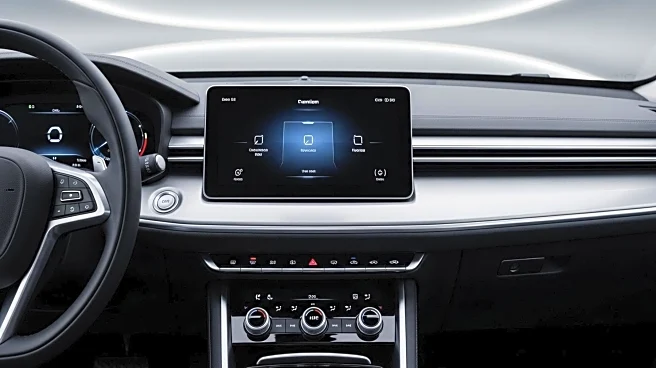What's Happening?
Audi has announced plans to reduce the number of customization options available for its vehicles, aiming to enhance the quality of its offerings. CEO Gernot Döllner explained that the company intends to focus on fewer, higher-quality elements, such as steering wheels, which currently have over 100 versions. This 'less is more' approach is part of Audi's strategy to elevate the luxury experience by refining key touchpoints in vehicle interiors. The initiative is exemplified by the recently unveiled Concept C, a sports car featuring premium materials like anodized aluminum and real metal badges. Audi is also discontinuing its cheapest models, the A1 supermini and Q2 crossover, to concentrate on more upscale offerings.
Why It's Important?
Audi's decision to streamline its options reflects a broader trend in the automotive industry towards simplification and quality enhancement. By reducing complexity, Audi aims to deliver a more cohesive and luxurious experience to its customers, potentially increasing brand loyalty and market competitiveness. This move could also lead to cost savings, allowing Audi to invest in premium materials and innovative designs. As consumer preferences shift towards quality and sustainability, Audi's strategy may position it favorably in the evolving luxury car market.
What's Next?
Audi plans to implement its new design philosophy across its entire portfolio, starting with the production version of the Concept C in 2027. The company is also preparing to release a new entry-level electric vehicle in 2026, signaling a commitment to sustainable mobility. As Audi transitions away from its cheapest models, it will focus on enhancing the appeal of its remaining lineup through improved design and technology. This strategic shift may influence other automakers to reconsider their approach to customization and quality.
Beyond the Headlines
Audi's emphasis on quality over quantity may have broader implications for the luxury automotive industry, encouraging a shift towards sustainable and minimalist design. This approach aligns with growing consumer demand for environmentally friendly and ethically produced goods. By prioritizing quality and innovation, Audi could set a precedent for other luxury brands to follow, potentially leading to a more sustainable and responsible industry.











